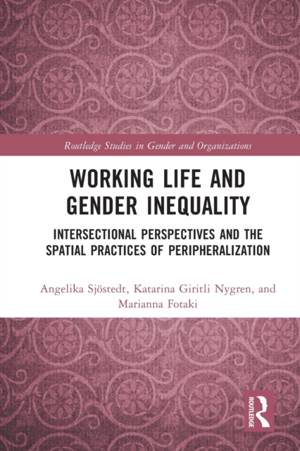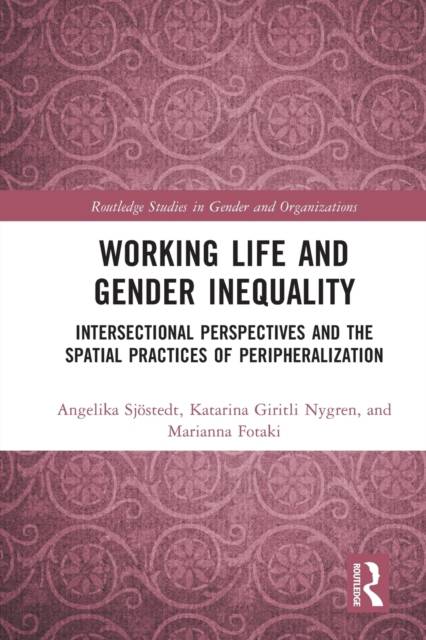
- Afhalen na 1 uur in een winkel met voorraad
- Gratis thuislevering in België vanaf € 30
- Ruim aanbod met 7 miljoen producten
- Afhalen na 1 uur in een winkel met voorraad
- Gratis thuislevering in België vanaf € 30
- Ruim aanbod met 7 miljoen producten
Working Life and Gender Inequality
Intersectional Perspectives and the Spatial Practices of Peripheralization
Omschrijving
In the modern globalized world of work, society's capitalist and patriarchal norms perpetuate old and create new differences based on gender, class, ethnicity, age, and other social categorizations.
This book proposes a novel conceptual framework offering theoretical and methodological insights for thinking through the present and future inequality challenges in the globalized world of work and working life issues in the context of spatio-temporal relations. Bringing together global feminist studies of intersectionality and transnationalism, work-life research, and studies of space, place, and identity, this edited collection responds to the growing interest in peripheries, rurality, and other spaces beyond the urban and business market centres. In crossing the theoretical boundaries between intersectionality and peripherality, this volume brings these concepts together to identify how racism, capitalism and heteropatriarchy operate on bodies in the name of work, particularly as expressed in precarious labour conditions. It also advocates for transnational solidarity as part of feminist ethics, while providing an opportunity to reflect on ways forward for feminist intersectional studies of work and working life, drawing on embodied relationality and a feminist ethics of care.
Working Life and Gender Inequality
explores the intersectional nature of gender, class, race and other inequalities from a global and spatial perspective. It will be of value to researchers, academics, students, managers, consultants, and policy makers in the fields of organizational studies, leadership, feminist and gender studies, working life, intersectionality and transnational feminism.Specificaties
Betrokkenen
- Uitgeverij:
Inhoud
- Aantal bladzijden:
- 302
- Taal:
- Engels
- Reeks:
Eigenschappen
- Productcode (EAN):
- 9780367747466
- Verschijningsdatum:
- 9/01/2023
- Uitvoering:
- Paperback
- Formaat:
- Trade paperback (VS)
- Afmetingen:
- 152 mm x 229 mm
- Gewicht:
- 412 g

Alleen bij Standaard Boekhandel
Beoordelingen
We publiceren alleen reviews die voldoen aan de voorwaarden voor reviews. Bekijk onze voorwaarden voor reviews.










